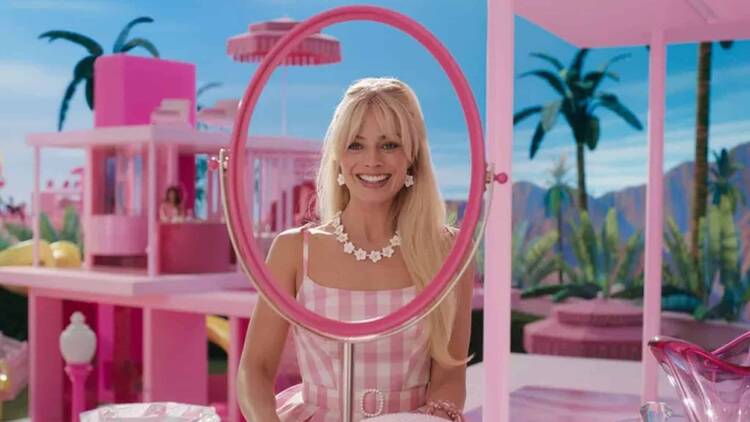The Catholic Movie Club is a short weekly essay pulling out spiritual themes in our favorite films. You can discuss the movies with other readers in the comments on this page or in our Facebook group. Find past Catholic Movie Club selections here.
Throughout Blockbuster Month, we’ve engaged with big summer movies across the decades, seeking to find deeper meaning behind the dazzling effects and star-studded casts.
At the beginning of this series, I noted that blockbusters are often dismissed as “empty noise.” And I can admit that there’s some truth to that accusation. While I stacked the deck a bit by choosing some of the best blockbusters ever made, you’ll find plenty of weightless CGI fights, canned quips and transparent toy commercials on the summer movie slate.
“Barbie” gives me hope for the future of blockbusters.
This week we conclude with our most recent blockbuster: Greta Gerwig’s “Barbie” (2023), a film that gives me hope for the future of blockbusters. Even in an age of focus-grouped corporate filmmaking, this film proves that big movies can wrestle with serious themes while still drawing a crowd. They can even touch the sublime.
In “Barbie,” the effervescent dolls exist in a plastic paradise known as “Barbieland” adjacent to our reality, where every day is a beach party. But when one Barbie (Margot Robbie) starts having intrusive thoughts of death, she embarks on a quest to the Real World to discover what’s gone wrong. Along for the ride is a Ken (Ryan Gosling), who is astounded to discover that the Real World is run by men, and begins to plot a new future for Barbieland. Their journey becomes a meditation on why we exist and what makes life meaningful.
It is (very intentionally, as Gerwig has noted in interviews) an “out of Eden” story: Barbie leaves paradise to find knowledge, and is irrevocably changed by what she learns. In this case it’s not so much knowledge of good and evil as it is knowledge of frailty, revelations about the pain and joy of living in flesh instead of plastic. But just as the Fall is sometimes called felix culpa (“happy fault”) because it led to our redemption through Christ, Barbie’s loss of innocence also turns out to be salvific, for her and others.
“Barbie” is a blockbuster in the truest sense of the word, a maximalist spectacle of dazzling costumes, dance numbers and big emotions. Of course, it’s also made an enormous amount of money, currently ranking as the highest-grossing film of the year and the biggest opening weekend in history for a film directed by a woman. It is also undoubtedly a corporate project, designed to sell toys. This makes it even more miraculous that it’s so thematically rich. The voices of Gerwig and her co-writer and spouse, filmmaker Noah Baumbach, come through loud and clear, instead of being flattened into something safe and inoffensive. This is a $100 million movie that makes allusions to the works of Jacques Tati and Demy, Tim Burton’s “Pee-Wee’s Big Adventure,” Peter Weir’s “The Truman Show” and the big studio musicals of the early 20th century. It’s the biggest movie of the summer, and its climax is (essentially) a conversation with God. That’s pretty extraordinary.
The cynical part of me worries that Hollywood will learn the wrong lessons from “Barbie’s” success. They’ll throw their energy into more toy movies or trying to replicate the “Barbenheimer” meme. Instead, I hope they learn that the biggest movies of the year don’t have to be all flash and no substance. People want stories that tackle the core questions of existence, especially if they’re combined with a spectacular time at the movies. You can have spectacle without sacrificing the soul.
‘Barbie’ is now in theaters.








